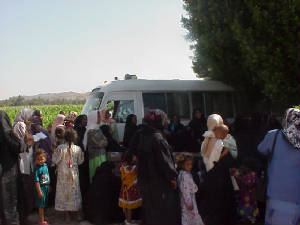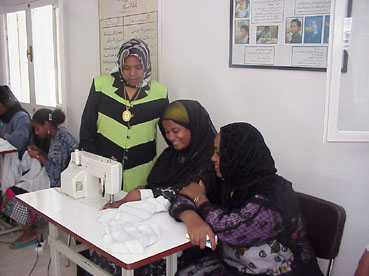|
Health Equity for the Remote Unprivileged GroupsMobile Clinics Network Services for Remote and Underserved Areas
At the start of the Health Reform we were challenged by the deprived services in remote unprivileged areas which account for 13% of the population of Egypt. They were not only deprived of health services but also facing major obstacles in fulfilling their essential health needs, which in turn has generated high morbidity and mortality rates. Dr. Sallam decided on immediate action and launched The Mobile Clinics Program to provide these areas with adequate primary healthcare and health education services including reproductive health services.The remote areas were identified as 3563 areas (13% of the population of Egypt) in the 27 governorates. Nearly eight million people live in these areas and suffer from the absence of healthcare services.
The program was designed to include the best human resources and a fleet of 480 mobile clinics serving eight million people from different age groups and gender. In 5 years time four million beneficiaries have enjoyed the mobile clinic services during the last three years. Out of those, 1,825,916 women have utilized the reproductive health services which were completely deprived before the start of the program. The service provided adequate care to 372,707 children. This successful program was financed through extra-budgetary Governmental fund and Social Fund for Development, USAID and Italian Aid. Human resources were carefuly chosen and female doctors were encouraged to lead the service. All the staff were kept om continous monitoring but in return the project provided them with up to date training programs and generous insentives. The program made an outstanding success in providing primary health care with high rate of satisfaction
from the users.
|
Enter supporting content here


